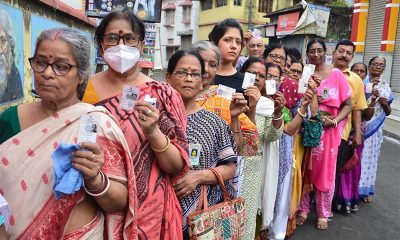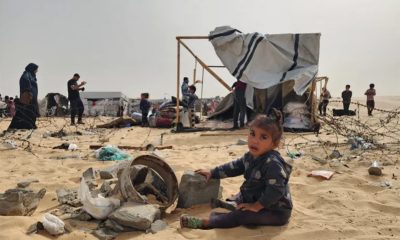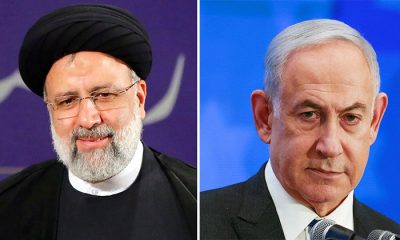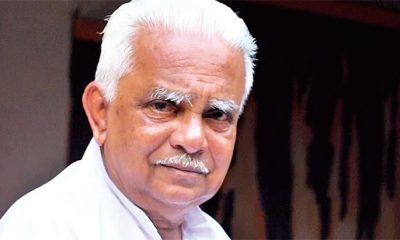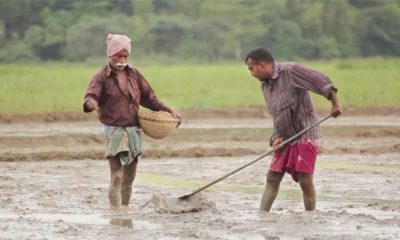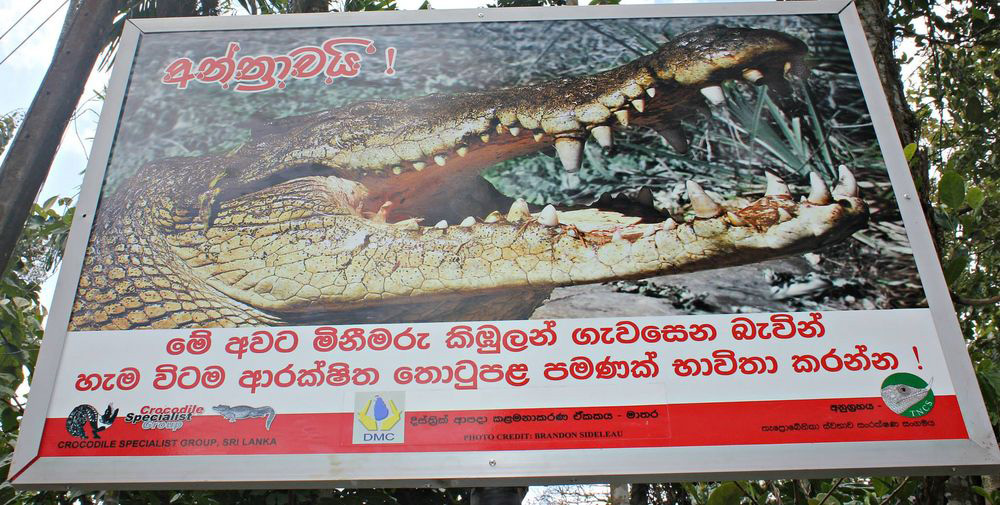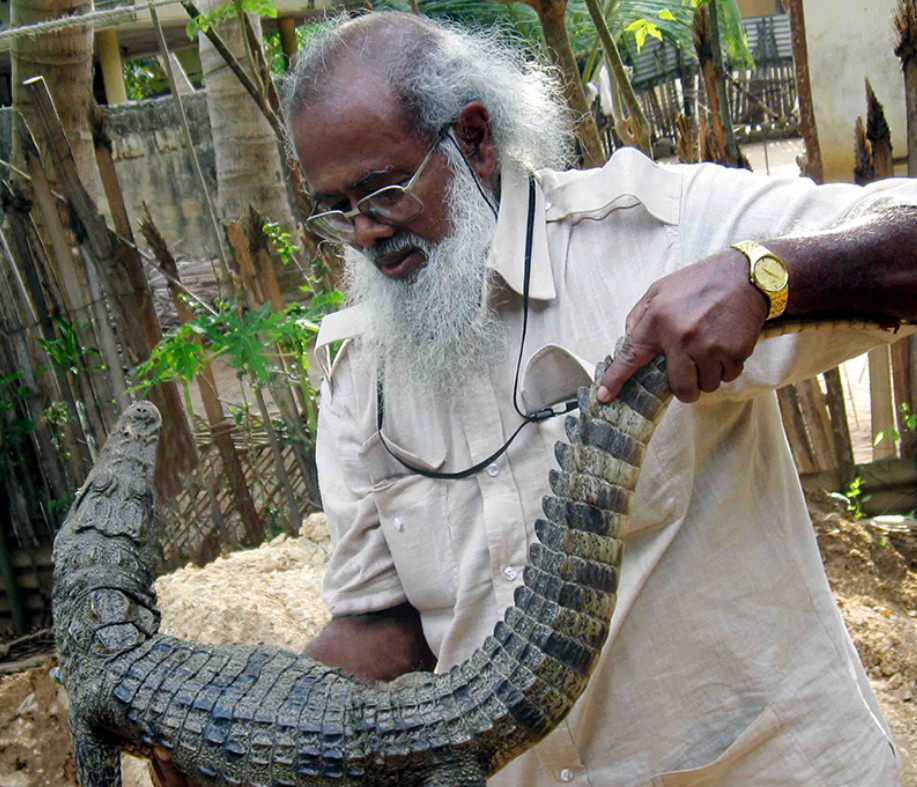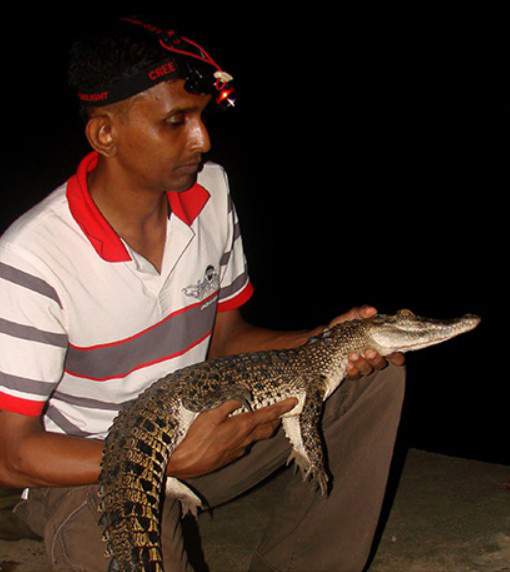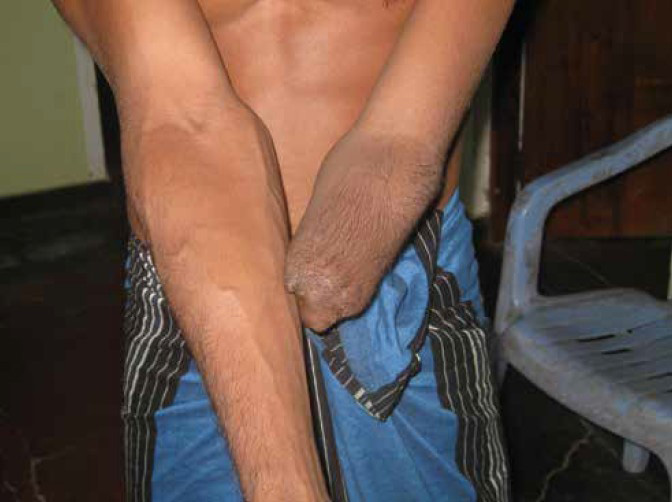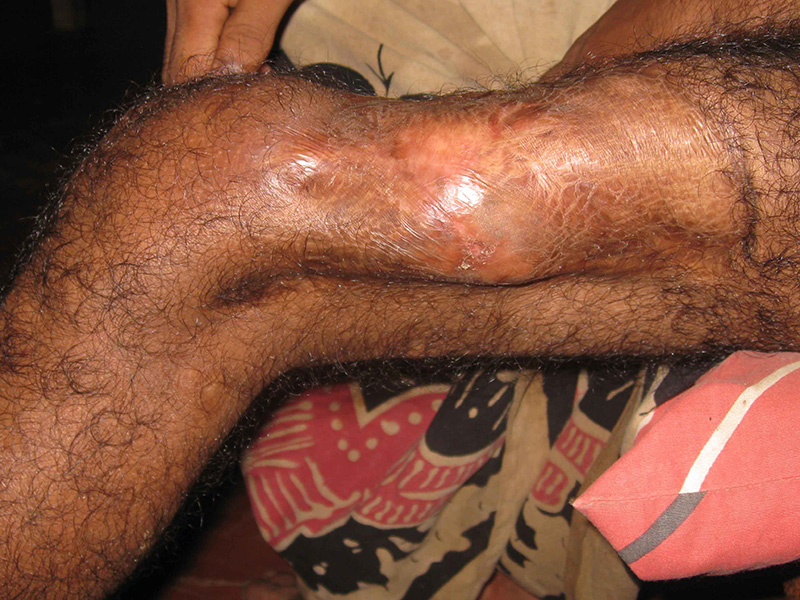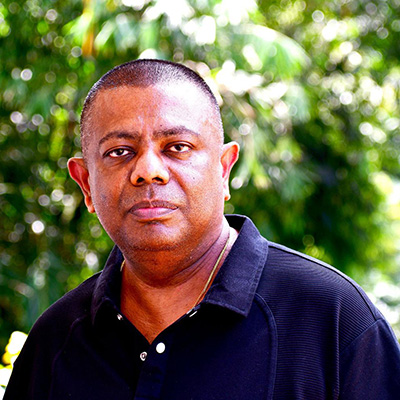Features
Defeating despair in the face of rising world disorder

 That rampant disorder is the starkest of global realities currently is a fact beyond dispute. While the international community is confronted with the grueling challenge of stemming such runaway disorder, an equally exacting undertaking for the world is the need to keep up its spirits in this uphill task of bringing order out of chaos.
That rampant disorder is the starkest of global realities currently is a fact beyond dispute. While the international community is confronted with the grueling challenge of stemming such runaway disorder, an equally exacting undertaking for the world is the need to keep up its spirits in this uphill task of bringing order out of chaos.
However, before getting down to any major ‘damage control’ initiatives or ‘saving acts’ in relation to the contemporary world, governments and publics would need to gain increasing clarity on the present pervasive issues in global politics. That is, educating and enlightening these sections emerge as principal needs and it is up to universities, higher educational institutions, research organizations, progressive think tanks and the like to take on these challenges.
Of the tertiary level educational institutions in Sri Lanka that have boldly and resourcefully taken on such tasks, the Bandaranaike Centre for International Studies (BCIS), Colombo, has been among the foremost. On May 14, 2024, the BCIS once again proved its capabilities in this regard when it held a largely attended and lively forum titled, ‘Multilateralism and Diplomacy for Peace’.
Under BCIS Chairperson, former President Ms. Chandrika Bandaranaike Kumaratunga and its Executive Director, Professor Emeritus Gamini Keerawella, the path-breaking nature of such BCIS initiatives has been increasingly in evidence in recent times. Panelists at the forum were, Ambassador of Japan to Sri Lanka Hideaki Mizukoshi and Resident Coordinator of the United Nations, Sri Lanka, Marc-Andre Franche. The forum was moderated by Member/Council of Management of the BCIS, Dr. Radhika Coomaraswamy.
Admitting that it is ‘difficult not to feel cynical today’ in the face of the world’s rising disorder and insecurity, Amb. Franche pointed out that multilateral institutions have not taken on current challenges effectively. For example, the UN Security Council’s dysfunctional nature in the face of present day global law and order issues has never been greater.
While it is difficult, Amb. Franche explained, to be optimistic currently, the UN has, nevertheless, forged ahead to the best of its ability to maintain world peace. It has prevented nuclear wars and helped in the socio-economic progress of countries to the extent possible. Moreover, the UN has been placing an emphasis on conflict prevention, mediation and the transformation of global peace operations in recent times.
It was Amb. Franche’s submission that the threats facing peace are vastly different today. However, the UN Secretary General Antonio Guterres has stuck to his task of being ‘the Conscience of the World’. In a historic statement recently Guterres called for a ‘New Social Contract between states and peoples, based on trust, inclusion and human rights, along with women’s active participation in all social segments.’
Ambassador Mizukoshi, among other things, pointed out that since Japan joined the UN in the mid-fifties, it has been dominant in the area of international cooperation and the socio-economic advancement of peoples.
Cooperating in advancing international peacekeeping and taking up in a major way global humanitarian relief operations, Japan has been prominent in even assisting Sri Lanka on a number of fronts. For example, in the early 2000s, Japan played a major role in conflict resolution and peace-building in Sri Lanka. Currently, it is in the forefront of Sri Lanka’s debt restructuring effort as a principal facilitator.
Japan, it was pointed out, is for peace and stability in the Asia-pacific region. It also actively supports peace diplomacy since international peace is high among its priorities.
The BCIS forum threw-up many a thought-provoking issue in current world politics for Sri Lanka and the world. It was a stimulant to fresh thinking on how the world community could forge ahead with meeting the challenge of fostering conflict-resolution and peace. This task is of the utmost importance because many are the observers who are likely to succumb to a mood of despair on seeing the increasingly aggravating lawlessness the world over.
However, it is important to point out that all peace hopes are not lost. It is particularly important that the UN Secretary General and his vast team ensure that the spirit of peace and reconciliation remains alive in them.
Although it is true that the UN system could be found to be inept in the Ukrainian and Gaza theatres in particular, the UN would do well to perceive that it still retains the initiative on the peace-building front. Its options continue to be ample and now is the time for the system to redouble its efforts to exploit them patiently and discreetly.
The unique strength of the UN is its ability to plod along with providing material and emotional assistance to the needy of the world on a non-discriminatory basis. These efforts have not and are unlikely to produce positive results in the near future but by being constantly there for the deprived the UN could inspire the needy with the hope that all is not lost for them in terms of bettering their lot eventually and blossoming into relatively stable persons and communities.
With time, such wholesomeness and stability could lay the basis for enlightened, democratic thinking among the social segments concerned. But the world would need to wait with immense patience until these welfare efforts of the UN bear fruit. There are no short cuts to bringing into being wholesome, democratically-inclined individuals and communities.
Besides providing nutritious food to the poor, the UN needs to work untiringly towards meeting the educational needs of the deprived. The long-term consequence of such efforts is the coming into being of democracy-conscious persons and communities. Thus, UN personnel cannot afford to give in to a mood of despair.
But there is no underestimating or denying the heartburn of those sections that want to see an improvement in the present lawlessness. A primary cause for such disenchantment is the irresponsible, reckless conduct of the foremost powers. Their agony is compounded by the fact these powers are permanent members of the UN Security Council.
There is the case of the US, for instance, which touts itself as the ‘World’s mightiest democracy’. However, it has done precious little to bring the Israeli state to the negotiating table over the issues in the Gaza. But on this question too all is not lost. Recently, apparently in reaction to increasing protests at home, the Biden administration had delayed some arms shipments to Israel.
Apparently, protests by democratic forces could make a dent in the conduct of governments that are committed to supporting repressive states. Much more needs to be done by the US, of course, to enable a negotiated settlement to solidify itself in the Middle East, but we have some proof in the US decision that democracy-inclined societies provide the best hopes for the world’s betterment. Thus, is the UN vindicated by plodding on with the task of fostering the wellbeing of the deprived the world over. Such efforts provide the fundamental basis for highly literate and democratic societies.
Features
When floods strike: How nations keep food on the table

Insights from global adaptation strategies
Sri Lanka has been heavily affected by floods, and extreme flooding is rapidly becoming one of the most disruptive climate hazards worldwide. The consequences extend far beyond damaged infrastructure and displaced communities. The food systems and supply networks are among the hardest hit. Floods disrupt food systems through multiple pathways. Croplands are submerged, livestock are lost, and soils become degraded due to erosion or sediment deposition. Infrastructural facilities like roads, bridges, retail shops, storage warehouses, and sales centres are damaged or rendered inaccessible. Without functioning food supply networks, even unaffected food-producing regions struggle to continue daily lives in such disasters. Poor households, particularly those dependent on farming or informal rural economies, face sharp food price increases and income loss, increasing vulnerability and food insecurity.
Many countries now recognie that traditional emergency responses alone are no longer enough. Instead, they are adopting a combination of short-term stabilisation measures and long-term strategies to strengthen food supply chains against recurrent floods. The most common immediate response is the provision of emergency food and cash assistance. Governments, the World Food Programme, and other humanitarian organisations often deliver food, ready-to-eat rations, livestock feed, and livelihood support to affected communities.
Alongside these immediate measures, some nations are implementing long-term strategic actions. These include technology- and data-driven approaches to improve flood preparedness. Early warning systems, using satellite data, hydrological models, and advanced weather forecasting, allow farmers and supply chain operators to prepare for potential disruptions. Digital platforms provide market intelligence, logistics updates, and risk notifications to producers, wholesalers, and transporters. This article highlights examples of such strategies from countries that experience frequent flooding.
China: Grain Reserves and Strategic Preparedness
China maintains a large strategic grain reserve system for rice, wheat, and maize; managed by NFSRA-National Food and Strategic Reserves Administration and Sinograin (China Grain Reserves Corporation (Sinograin Group), funded by the Chinese government, that underpins national food security and enables macro-control of markets during supply shocks. Moreover, improvements in supply chain digitization and hydrological monitoring, the country has strengthened its ability to maintain stable food availability during extreme weather events.
Bangladesh: Turning Vulnerability into Resilience
In recent years, Bangladesh has stood out as one of the world’s most flood-exposed countries, yet it has successfully turned vulnerability into adaptive resilience. Floating agriculture, flood-tolerant rice varieties, and community-run grain reserves now help stabilise food supplies when farmland is submerged. Investments in early-warning systems and river-basin management have further reduced crop losses and protected rural livelihoods.
Netherlands, Japan: High-Tech Models of Flood Resilience
The Netherlands offers a highly technical model. After catastrophic flooding in 1953, the country completely redesigned its water governance approach. Farmland is protected behind sea barriers, rivers are carefully controlled, and land-use zoning is adaptive. Vertical farming and climate-controlled greenhouses ensure year-round food production, even during extreme events. Japan provides another example of diversified flood resilience. Following repeated typhoon-induced floods, the country shifted toward protected agriculture, insurance-backed farming, and automated logistics systems. Cold storage networks and digital supply tracking ensure that food continues to reach consumers, even when roads are cut off. While these strategies require significant capital and investment, their gradual implementation provides substantial long-term benefits.
Pakistan, Thailand, Indonesia, and Vietnam: Reform in Response to Recurrent Floods
In contrast, Pakistan and Thailand illustrate both the consequences of climate vulnerability and the benefits of proactive reform. The 2022 floods in Pakistan submerged about one-third of the country, destroying crops and disrupting trade networks. In response, the country has placed greater emphasis on climate-resilient farming, water governance reforms, and satellite-based crop monitoring. Pakistan as well as India is promoting crop diversification and adjusting planting schedules to help farmers avoid the peak monsoon flood periods.
Thailand has invested in flood zoning and improved farm infrastructure that keep markets supplied even during severe flooding. Meanwhile, Indonesia and Vietnam are actively advancing flood-adapted land-use planning and climate-resilient agriculture. For instance, In Vietnam’s Mekong Delta, pilot projects integrate flood-risk mapping, adaptive cropping strategies, and ecosystem-based approaches to reduce vulnerability in agricultural and distribution areas. In Indonesia, government-supported initiatives and regional projects are strengthening flood-risk-informed spatial planning, adaptive farming practices, and community-based water management to improve resilience in flood-prone regions. (See Figure 1)
 The Global Lesson: Resilience Requires Early Investment
The Global Lesson: Resilience Requires Early Investment
The global evidence is clear: countries that invest early in climate-adaptive agriculture and resilient logistics are better able to feed their populations, even during extreme floods. Building a resilient future depends not only on how we grow food but also on how we protect, store, and transport it. Strengthening infrastructure is therefore central to stabilising food supply chains while maintaining food quality, even during prolonged disruptions. Resilient storage systems, regional grain reserves, efficient cold chains, improved farming infrastructure, and digital supply mapping help reduce panic buying, food waste, and price shocks after floods, while ensuring that production capacity remains secure.
Persistent Challenges
However, despite these advances, many flood-exposed countries still face significant challenges. Resources are often insufficient to upgrade infrastructure or support vulnerable rural populations. Institutional coordination across the agriculture, disaster management, transport, and environmental sectors remains weak. Moreover, the frequency and scale of climate-driven floods are exceeding the design limits of older disaster-planning frameworks. As a result, the gap between exposure and resilience continues to widen. These challenges are highly relevant to Sri Lanka as well and require deliberate, gradual efforts to phase them out.
The Role of International Trade and global markets
When domestic production falls in such situations, international trade serves as an important buffer. When domestic production is temporarily reduced, imports and regional trade flows can help stabilise food availability. Such examples are available from other countries. For instance, In October 2024, floods in Bangladesh reportedly destroyed about 1.1 million tonnes of rice. In response, the government moved to import large volumes of rice and allowed accelerated or private-sector imports of rice to stabilize supply and curb food price inflation. This demonstrates how, when domestic production fails, international trade/livestock/food imports (from trade partners) acted as a crucial buffer to ensure availability of staple food for the population. However, this approach relies on well-functioning global markets, strong diplomatic relationships, and adequate foreign exchange, making it less reliable for economically fragile nations. For example, importing frozen vegetables to Sri Lanka from other countries can help address supply shortages, but considerations such as affordability, proper storage and selling mechanisms, cooking guidance, and nutritional benefits are essential, especially when these foods are not widely familiar to local populations.
Marketing and Distribution Strategies during Floods
Ensuring that food reaches consumers during floods requires innovative marketing and distribution strategies that address both supply- and demand-side challenges. Short-term interventions often include direct cash or food transfers, mobile markets, and temporary distribution centres in areas where conventional marketplaces become inaccessible. Price stabilisation measures, such as temporary caps or subsidies on staple foods, help prevent sharp inflation and protect vulnerable households. Awareness campaigns also play a role by educating consumers on safe storage, cooking methods, and the nutritional value of unfamiliar imported items, helping sustain effective demand.
Some countries have integrated technology to support these efforts; in this regard, adaptive supply chain strategies are increasingly used. Digital platforms provide farmers, wholesalers, and retailers with real-time market information, logistics updates, and flood-risk alerts, enabling them to reroute deliveries or adjust production schedules. Diversified delivery routes, using alternative roads, river transport, drones, or mobile cold-storage units, have proven essential for maintaining the flow of perishable goods such as vegetables, dairy, and frozen products. A notable example is Japan, where automated logistics systems and advanced cold-storage networks help keep supermarkets stocked even during severe typhoon-induced flooding.
The Importance of Research, Coordination, and Long-Term Commitment
Global experience also shows that research and development, strong institutional coordination, and sustained national commitment are fundamental pillars of flood-resilient food systems. Countries that have successfully reduced the impacts of recurrent floods consistently invest in agricultural innovation, cross-sector collaboration, and long-term planning.
Awareness Leads to Preparedness
As the summary, global evidence shows that countries that act early, plan strategically, and invest in resilience can protect both people and food systems. As Sri Lanka considers long-term strategies for food security under climate change, learning from flood-affected nations can help guide policy, planning, and public understanding. Awareness is the first step which preparedness must follow. These international experiences offer valuable lessons on how to protect food systems through proactive planning and integrated actions.
(Premaratne (BSc, MPhil, LLB) isSenior Lecturer in Agricultural Economics Department of Agricultural Systems, Faculty of Agriculture, Rajarata University. Views are personal.)
Key References·
Cabinet Secretariat, Government of Japan, 2021. Fundamental Plan for National Resilience – Food, Agriculture, Forestry and Fisheries / Logistics & Food Supply Chains. Tokyo: Cabinet Secretariat.
· Delta Programme Commissioner, 2022. Delta Programme 2023 (English – Print Version). The Hague: Netherlands Delta Programme.
· Hasanuddin University, 2025. ‘Sustainable resilience in flood-prone rice farming: adaptive strategies and risk-sharing around Tempe Lake, Indonesia’, Sustainability. Available at: https://www.mdpi.com/2071-1050/17/6/2456 [Accessed 3 December 2025].
· Mekong Urban Flood Resilience and Drainage Programme (TUEWAS), 2019–2021. Integrated urban flood and drainage planning for Mekong cities. TUEWAS / MRC initiative.
· Ministry of Agriculture and Rural Affairs, People’s Republic of China, 2025. ‘China’s summer grain procurement surpasses 50 mln tonnes’, English Ministry website, 4 July.
· National Food and Strategic Reserves Administration (China) 2024, ‘China purchases over 400 mln tonnes of grain in 2023’, GOV.cn, 9 January. Available at: https://english.www.gov.cn/archive/statistics/202401/09/content_WS659d1020c6d0868f4e8e2e46.html
· Pakistan: 2022 Floods Response Plan, 2022. United Nations / Government of Pakistan, UN Digital Library.
· Shigemitsu, M. & Gray, E., 2021. ‘Building the resilience of Japan’s agricultural sector to typhoons and heavy rain’, OECD Food, Agriculture and Fisheries Papers, No. 159. Paris: OECD Publishing.
· UNDP & GCF, 2023. Enhancing Climate Resilience in Thailand through Effective Water Management and Sustainable Agriculture (E WMSA): Project Factsheet. UNDP, Bangkok.
· United Nations Development Programme (UNDP), 2025. ‘Rice Bank revives hope in flood hit hill tracts, Bangladesh’, UNDP, 19 June.
· World Bank, 2022. ‘Bangladesh: World Bank supports food security and higher incomes of farmers vulnerable to climate change’, World Bank press release, 15 March.
Features
Can we forecast weather precisely?

Weather forecasts are useful. People attentively listen to them but complain that they go wrong or are not taken seriously. Forecasts today are more probabilistically reliable than decades ago. The advancement of atmospheric science, satellite imaging, radar maps and instantly updated databases has improved the art of predicting weather.
Yet can we predict weather patterns precisely? A branch of mathematics known as chaos theory says that weather can never be foretold with certainty.
The classical mechanics of Issac Newton governing the motion of all forms of matter, solid, liquid or gaseous, is a deterministic theory. If the initial conditions are known, the behaviour of the system at later instants of time can be precisely predicted. Based on this theory, occurrences of solar eclipses a century later have been predicted to an accuracy of minutes and seconds.
The thinking that the mechanical behaviour of systems in nature could always be accurately predicted based on their state at a previous instant of time was shaken by the work of the genius French Mathematician Henri Poincare (1864- 1902).
Eclipses are predicted with pinpoint accuracy based on analysis of a two-body system (Earth- Moon) governed by Newton’s laws. Poincare found that the equivalent problem of three astronomical bodies cannot be solved exactly – sometimes even the slightest variation of an initial condition yields a drastically different solution.
A profound conclusion was that the behaviour of physical systems governed by deterministic laws does not always allow practically meaningful predictions because even a minute unaccountable change of parameters leads to completely different results.
Until recent times, physicists overlooked Poincare’s work and continued to believe that the determinism of the laws of classical physics would allow them to analyse complex problems and derive future happenings, provided necessary computations are facilitated. When computers became available, the meteorologists conducted simulations aiming for accurate weather forecasting. The American mathematician Edward Lorenz, who turned into a reputed meteorologist, carried out such studies in the early 1960s, arrived at an unexpected result. His equations describing atmospheric dynamics demonstrated a strange behaviour. He found that even a minute change (even one part in a million) in initial parameters leads to a completely different weather pattern in the atmosphere. Lorenz announced his finding saying, A flap of a butterfly wing in one corner of the world could cause a cyclone in a far distant location weeks later! Lorenz’s work opened the way for the development branch of mathematics referred to as chaos theory – an expansion of the idea first disclosed by Henri Poincare.
We understand the dynamics of a cyclone as a giant whirlpool in the atmosphere, how it evolves and the conditions favourable for their origination. They are created as unpredictable thermodynamically favourable relaxation of instabilities in the atmosphere. The fundamental limitations dictated by chaos theory forbid accurate forecasting of the time and point of its appearance and the intensity. Once a cyclone forms, it can be tracked and the path of movement can be grossly ascertained by frequent observations. However, absolutely certain predictions are impossible.
A peculiarity of weather is that the chaotic nature of atmospheric dynamics does not permit ‘long – term’ forecasting with a high degree of certainty. The ‘long-term’ in this context, depending on situation, could be hours, days or weeks. Nonetheless, weather forecasts are invaluable for preparedness and avoiding unlikely, unfortunate events that might befall. A massive reaction to every unlikely event envisaged is also not warranted. Such an attitude leads to social chaos. The society far more complex than weather is heavily susceptible to chaotic phenomena.
by Prof. Kirthi Tennakone (ktenna@yahoo.co.uk)
Features
When the Waters Rise: Floods, Fear and the ancient survivors of Sri Lanka
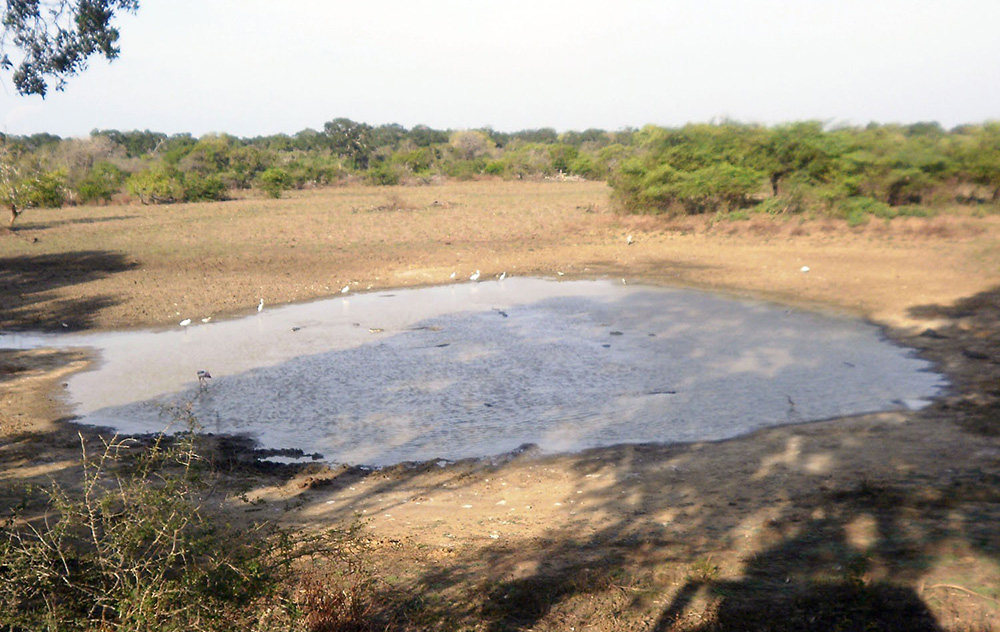
The water came quietly at first, a steady rise along the riverbanks, familiar to communities who have lived beside Sri Lanka’s great waterways for generations. But within hours, these same rivers had swollen into raging, unpredictable forces. The Kelani Ganga overflowed. The Nilwala broke its margins. The Bentara, Kalu, and Mahaweli formed churning, chocolate-brown channels cutting through thousands of homes.
When the floods finally began to recede, villagers emerged to assess the damage, only to be confronted by another challenge: crocodiles. From Panadura’s back lanes to the suburbs of Colombo, and from the lagoons around Kalutara to the paddy fields of the dry zone, reports poured in of crocodiles resting on bunds, climbing over fences, or drifting silently into garden wells.
For many, these encounters were terrifying. But to Sri Lanka’s top herpetologists, the message was clear: this is what happens when climate extremes collide with shrinking habitats.
“Crocodiles are not invading us … we are invading floodplains”
Sri Lanka’s foremost crocodile expert, Dr. Anslem de Silva, Regional Chairman for South Asia and Iran of the IUCN/SSC Crocodile Specialist Group, has been studying crocodiles for over half a century. His warning is blunt.
“When rivers turn into violent torrents, crocodiles simply seek safety,” he says. “They avoid fast-moving water the same way humans do. During floods, they climb onto land or move into calm backwaters. People must understand this behaviour is natural, not aggressive.”
In the past week alone, Saltwater crocodiles have been sighted entering the Wellawatte Canal, drifting into the Panadura estuary, and appearing unexpectedly along Bolgoda Lake.
“Saltwater crocodiles often get washed out to sea during big floods,” Dr. de Silva explains. “Once the current weakens, they re-enter through the nearest lagoon or canal system. With rapid urbanisation along these waterways, these interactions are now far more visible.”
- An adult Salt Water Crocodile (Crocodylus porosus) (Photo -Madura de Silva)
- Adult Mugger (Crocodylus plaustris) Photo -Laxhman Nadaraja
- A Warning sign board
- A Mugger holding a a large Russell ’s viper (Photo- R. M. Gunasinghe)
- Anslem de Silva
- Suranjan Karunarathna
This clash between wildlife instinct and human expansion forms the backdrop of a crisis now unfolding across the island.
A conflict centuries old—now reshaped by climate change
Sri Lanka’s relationship with crocodiles is older than most of its kingdoms. The Cūḷavaṃsa describes armies halted by “flesh-eating crocodiles.” Ancient medical texts explain crocodile bite treatments. Fishermen and farmers around the Nilwala, Walawe, Maduganga, Batticaloa Lagoon, and Kalu Ganga have long accepted kimbula as part of their environment.
But the modern conflict has intensified dramatically.
A comprehensive countrywide survey by Dr. de Silva recorded 150 human–crocodile attacks, with 50 fatal, between 2008 and 2010. Over 52 percent occurred when people were bathing, and 83 percent of victims were men engaged in routine activities—washing, fishing, or walking along shallow margins.
Researchers consistently emphasise: most attacks happen not because crocodiles are unpredictable, but because humans underestimate them.
Yet this year’s flooding has magnified risks in new ways.
“Floods change everything” — Dr. Nimal D. Rathnayake
Herpetologist Dr. Nimal Rathnayake says the recent deluge cannot be understood in isolation.
“Floodwaters temporarily expand the crocodile’s world,” he says. “Areas people consider safe—paddy boundaries, footpaths, canal edges, abandoned land—suddenly become waterways.”
Once the water retreats, displaced crocodiles may end up in surprising places.
“We’ve documented crocodiles stranded in garden wells, drainage channels, unused culverts and even construction pits. These are not animals trying to attack. They are animals trying to survive.”
According to him, the real crisis is not the crocodile—it is the loss of wetlands, the destruction of natural river buffers, and the pollution of river systems.
“When you fill a marsh, block a canal, or replace vegetation with concrete, you force wildlife into narrower corridors. During floods, these become conflict hotspots.”
Past research by the Crocodile Specialist Group shows that more than 300 crocodiles have been killed in retaliation or for meat over the past decade. Such killings spike after major floods, when fear and misunderstanding are highest.
“Not monsters—ecosystem engineers” — Suranjan Karunaratne
On social media, flood-displaced crocodiles often go viral as “rogue beasts.” But conservationist Suranjan Karunaratne, also of the IUCN/SSC Crocodile Specialist Group, says such narratives are misleading.
“Crocodiles are apex predators shaped by millions of years of evolution,” he says. “They are shy, intelligent animals. The problem is predictable human behaviour.”
In countless attack investigations, Karunaratne and colleagues found a repeated pattern: the Three Sames—the same place, the same time, the same activity.
“People use the same bathing spot every single day. Crocodiles watch, learn, and plan. They hunt with extraordinary patience. When an attack occurs, it’s rarely random. It is the culmination of observation.”
He stresses that crocodiles are indispensable to healthy wetlands. They: control destructive catfish populations, recycle nutrients, clean carcasses and diseased fish, maintain biodiversity, create drought refuges through burrows used by amphibians and reptiles.
“Removing crocodiles destroys an entire chain of ecological services. They are not expendable.”
Karunaratne notes that after the civil conflict, Mugger populations in the north rebounded—proof that crocodiles recover when given space, solitude, and habitat.
Floods expose a neglected truth: CEEs save lives—if maintained In high-risk communities, Crocodile Exclusion Enclosures (CEEs) are often the only physical barrier between people and crocodiles. Built along riverbanks or tanks, these enclosures allow families to bathe, wash, and collect water safely.
Yet Dr. de Silva recounts a tragic incident along the Nilwala River where a girl was killed inside a poorly maintained enclosure. A rusted iron panel had created a hole just large enough for a crocodile to enter.
“CEEs are a life-saving intervention,” he says. “But they must be maintained. A neglected enclosure is worse than none at all.”
Despite their proven effectiveness, many CEEs remain abandoned, broken or unused.
Climate change is reshaping crocodile behaviour—and ours
Sri Lanka’s floods are no longer “cycles” as described in folklore. They are increasingly intense, unpredictable and climate-driven. The warming atmosphere delivers heavier rainfall in short bursts. Deforested hillsides and filled wetlands cannot absorb it.
Rivers swell rapidly and empty violently.
Crocodiles respond as they have always done: by moving to calmer water, by climbing onto land, by using drainage channels, by shifting between lagoons and canals, by following the shape of the water.
But human expansion has filled, blocked, or polluted these escape routes.
What once were crocodile flood refuges—marshes, mangroves, oxbow wetlands and abandoned river channels—are now housing schemes, fisheries, roads, and dumpsites.
Garbage, sand mining and invasive species worsen the crisis
The research contained in the uploaded reports paints a grim but accurate picture. Crocodiles are increasingly seen around garbage dumps, where invasive plants and waste accumulate. Polluted water attracts fish, which in turn draw crocodiles.
Excessive sand mining in river mouths and salinity intrusion expose crocodile nesting habitats. In some areas, agricultural chemicals contaminate wetlands beyond their natural capacity to recover.
In Borupana Ela, a short study found 29 Saltwater crocodiles killed in fishing gear within just 37 days.
Such numbers suggest a structural crisis—not a series of accidents.
Unplanned translocations: a dangerous human mistake
For years, local authorities attempted to reduce conflict by capturing crocodiles and releasing them elsewhere. Experts say this was misguided.
“Most Saltwater crocodiles have homing instincts,” explains Karunaratne. “Australian studies show many return to their original site—even if released dozens of kilometres away.”
Over the past decade, at least 26 Saltwater crocodiles have been released into inland freshwater bodies—home to the Mugger crocodile. This disrupts natural distribution, increases competition, and creates new conflict zones.
Living with crocodiles: a national strategy long overdue
All three experts—Dr. de Silva, Dr. Rathnayake and Karunaratne—agree that Sri Lanka urgently needs a coordinated, national-level mitigation plan.
* Protect natural buffers
Replant mangroves, restore riverine forests, enforce river margin laws.
* Maintain CEEs
They must be inspected, repaired and used regularly.
* Public education
Villagers should learn crocodile behaviour just as they learn about monsoons and tides.
* End harmful translocations
Let crocodiles remain in their natural ranges.
* Improve waste management
Dumps attract crocodiles and invasive species.
* Incentivise community monitoring
Trained local volunteers can track sightings and alert authorities early.
* Integrate crocodile safety into disaster management
Flood briefings should include alerts on reptile movement.
“The floods will come again. Our response must change.”
As the island cleans up and rebuilds, the deeper lesson lies beneath the brown floodwaters. Crocodiles are not new to Sri Lanka—but the conditions we are creating are.
Rivers once buffered by mangroves now rush through concrete channels. Tanks once supporting Mugger populations are choked with invasive plants. Wetlands once absorbing floodwaters are now levelled for construction.
Crocodiles move because the water moves. And the water moves differently today.
Dr. Rathnayake puts it simply:”We cannot treat every flooded crocodile as a threat to be eliminated. These animals are displaced, stressed, and trying to survive.”
Dr. de Silva adds:”Saving humans and saving crocodiles are not competing goals. Both depend on understanding behaviour—ours and theirs.”
And in a closing reflection, Suranjan Karunaratne says:”Crocodiles have survived 250 million years, outliving dinosaurs. Whether they survive the next 50 years in Sri Lanka depends entirely on us.”
For now, as the waters recede and the scars of the floods remain, Sri Lanka faces a choice: coexist with the ancient guardians of its waterways, or push them into extinction through fear, misunderstanding and neglect.
By Ifham Nizam
-
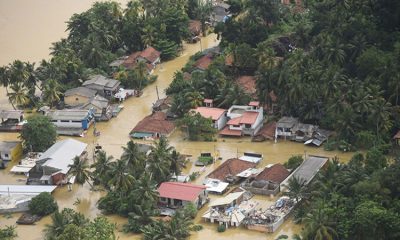
 News6 days ago
News6 days agoWeather disasters: Sri Lanka flooded by policy blunders, weak enforcement and environmental crime – Climate Expert
-

 Latest News6 days ago
Latest News6 days agoLevel I landslide RED warnings issued to the districts of Badulla, Colombo, Gampaha, Kalutara, Kandy, Kegalle, Kurnegala, Natale, Monaragala, Nuwara Eliya and Ratnapura
-
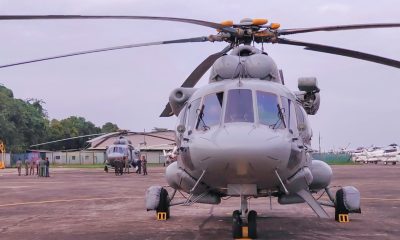
 Latest News6 days ago
Latest News6 days agoINS VIKRANT deploys helicopters for disaster relief operations
-
News3 days ago
Lunuwila tragedy not caused by those videoing Bell 212: SLAF
-

 Latest News7 days ago
Latest News7 days agoDepartment of Irrigation issues Critical flood warning to the Kelani river basin
-

 Latest News4 days ago
Latest News4 days agoLevel III landslide early warnings issued to the districts of Badulla, Kandy, Kegalle, Kurunegala, Matale and Nuwara-Eliya
-

 News2 days ago
News2 days agoLevel III landslide early warning continue to be in force in the districts of Kandy, Kegalle, Kurunegala and Matale
-

 Editorial7 days ago
Editorial7 days agoNeeded: Action not rhetoric


